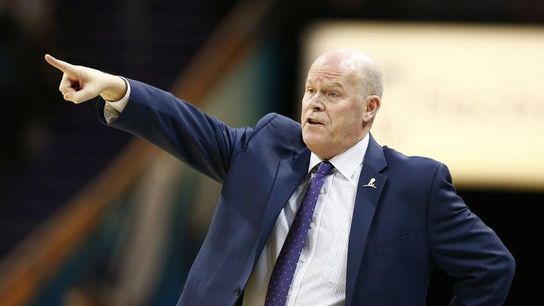Steve Clifford is not a football coach, but he's a coach many football coaches can appreciate. Hailing from Island Falls, Maine -- population as of the 2010 census: 837 -- and played college ball at the Division III University of Maine at Farmington, where he was a team captain and the club's Defensive Player of the Year.
From there, Clifford jumped into coaching in the Maine high school ranks and started his climb, from the most remote of basketball outposts, to a small college assistant, to a small college head coach, to a major college assistant, to a pro scout, to an NBA assistant and, finally, 30 years after his career began, as the head coach of the Charlotte Hornets. Clifford spent five seasons as the Hornets' head coach, taking the club to two playoff appearances before he was let go in April.
Clifford appeared on Adrian Wojnarowski's podcast, and the topic turned to how coaches break through the noise created by the "people" that surround players these days -- trainers, family members, people on Twitter, what have you -- and reach players.
"The most important relationship with your player, if you want to have a chance to max out your team, has got to be with the head coach. That's just the way it is. If you're not willing to put time in, where you know them, they know your expectations... it doesn't mean they're going to like it. You have to have a feel for who they're listening to, where they're getting their information from, and they have to know what you expect."
Clifford then told a story of being a 34-year-old head coach and getting his first head job at the college level. He called Jeff Van Gundy, then the head coach of the Knicks, asking for advice, who told Clifford to meet him at a golf outing.
"He said two things. Number one: Only address your team when you have something to say. Don't blow the whistle every day, have them run to half court and give them a speech about (how) they have to work hard. Everybody knows that. Because when you do have something important to say, you want them to listen. When you talk to them every day about playing hard, about working hard, the impact is gone when you need it the most," Clifford said.
"The second thing was, he showed me his leadership statement. There were five things that he talked about, but his first one is the one that I copied. It's what I tried to do as a head coach: If you asked the guys in Charlotte about Steve Clifford I would want them to say, 'He wants me to do well.' I don't think there's anything more important than that.
"There's been guys there that maybe haven't agreed with how I think they should play, that's part of coaching. They maybe haven't liked the way I've coached them. But I can honestly say that none of them will ever leave and say, 'Boy, he didn't spend enough time with me. He didn't know my game. He didn't put a lot into coaching me.'"
Clifford then delved into how a coach deals with the fact he's not the only voice in his players' ears. In short: he tells players the truth that their trainers, their uncles and their buddies won't tell them.
"You're not going to control who's talking to these guys," he said. "What you can do, however, is make sure that all of them know where you're coming from. Coaching is not taking a guy and working on his shooting, his ball handling, his post moves. That's skill development. Coaching is then taking that guy and saying, 'You're best at 14 minutes a night. Even though you're working three hours a day, you're just not good enough for more than that.' That's coaching."
